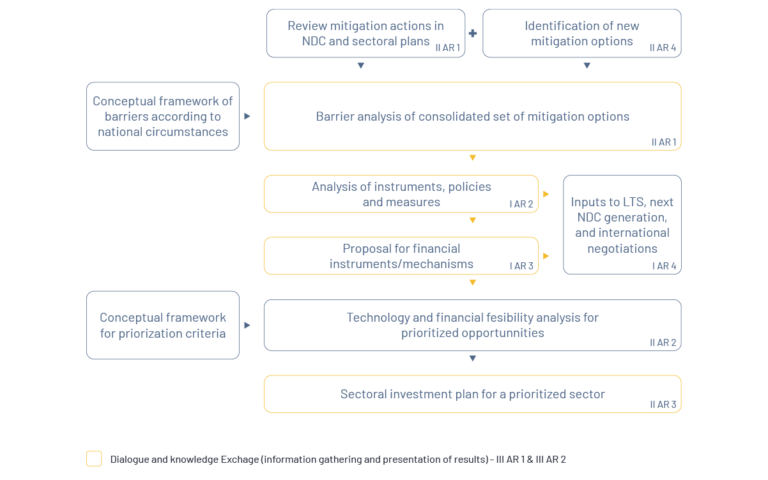Objectives
Decarboost Project is structured in three outcomes that will be developed with focus on three main sectors.

Agriculture, Forestry and Other Land Use

Energy

Transport
The transport sector plays a significant role in the economic structure as it makes feasible the access of key traded commodities to international markets. It accounts for about 14% of national GHG emissions (3rd BUR). In 2019, the transport sector represented the 33% of the energy demand in the country. This consumption was supplied by diesel (39%), gasoline (36%), natural gas (12%), biofuels (9%) and other fuels (4%) (Second NDC).
Given the systemic trait of the entire energy chain, addressing it, is crucial for emissions reduction as well as for its contribution to improving competitiveness across the entire economy, reducing operational costs in different sectors. Conversely, measures oriented to promote GHG emissions reductions in other productive and service sectors will have an impact in the energy and transport sectors by creating new demands and fostering changes in the supply matrix.
The expected outcomes for the three sectors assesed in this Project are the following:

The specific country activities are structured to achieve the abovementioned outcomes of the Project in the following way:

